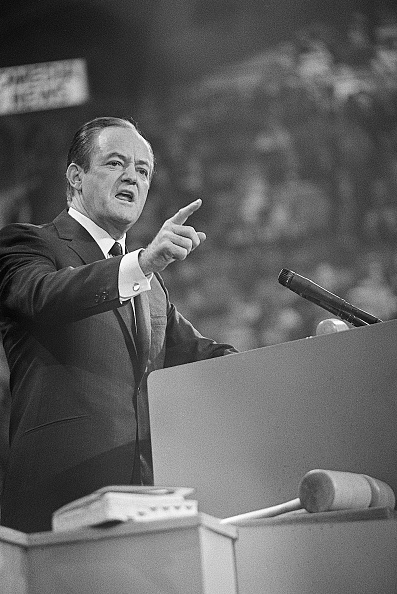The temptation to tinker with a presidential selection process that has produced the two most unpopular nominees in memory will be significant. If Republican and Democratic officials choose to go that route after this campaign season is behind us, what are the options?
The nomination turmoil on display this year has been a long time coming and is more evidence of the weakened state of the major political parties. A century ago Progressive governors like California’s Hiram Johnson and Wisconsin’s Robert La Follette began advocating for more direct democracy. They targeted the patronage and corruption linked to urban boss politics; instituted ballot initiatives that allowed voters to circumvent state legislators; and favored primary elections over nominating conventions in an effort to make the process more transparent.
 |
| Hubert Humphrey at 1968 Democratic Convention |
Some reforms from that era were adopted more readily than others, but a tipping point occurred in 1968 at the Democratic convention, when Mayor Richard Daley, who headed Chicago’s political machine, passed over Eugene McCarthy, who had won the most primary votes, and delivered the presidential nomination to Hubert Humphrey, who had not even entered a single primary.
After Humphrey lost the general election to Richard Nixon, Democrats gave in to pressure to change the rules so that party leaders would no longer be able to hand-pick convention delegates. The party also required states to choose delegates through primary elections or caucuses. ...Read the rest from Jason Riley HERE and view a related video below:
If you like what you see, please "Like" us on Facebook either here or here. Please follow us on Twitter here.


No comments:
Post a Comment